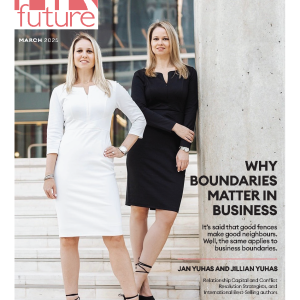Automation and AI will massively impact the shape of the modern workplace, and companies should see this as an opportunity to reskill employees for the digital age. The potential this has in the South African job market is significant.
Unfortunately, blaming technology has often been an easy way out for those companies embarking on retrenchments, when instead the issues are much broader than that. Many organisations want to reduce customer-facing staff as they believe people’s behaviour changed because of the availability of digital solutions. But possibly reskilling those staff could see the additional value created for customers beyond the traditional. Especially in roles where human insight can deliver much better returns for customer problems.
In banking, when ATMs were first rolled out across the US in the 70s and 80s, the expected result was to reduce the number of tellers. Instead, it had the reverse effect with more customers wanting to speak to tellers and get advice, and the number of branches actually increased. The teller’s role and value to the customer had evolved thanks to technological innovation. Automation continues to provide opportunities to offer this benefit to the customer, but by assisting employees to be more efficient, it can also be done cost-effectively.
Changing environment
The current challenging economic environment has put pressure on businesses across all industry sectors to reduce costs. This, unfortunately, has resulted in increased retrenchments, especially in the white-collar world. As a result, fewer people are expected to complete the same amount of work that was previously done by larger workforces.
It is not like the work has decreased. Instead, employees are expected to work longer hours for the same amount of money. This is where the demand for automation is coming in. It is not automation that is causing the job cuts – instead, it is because of job cuts that automation is becoming more and more essential.
Office automation has been growing in momentum since the 60s, but it is only now with the advent of effective artificial intelligence that smart automation is becoming possible. Some tasks are easier to automate than others especially when it comes to repetitive administration work.
People still have the edge over automation when it comes to their creativity and human empathy. There are certain tasks that machines can do better and certain ones that people excel at. The interesting discussions will take place around the middle ground where humans can use technology to enhance their results. Paul Daugherty, in his excellent book, Human + Machine, calls this the area where technology ‘gives humans superpowers.’
Skills development
For this to work, companies must encourage a culture of learning and make time available for their employees to look at ways of using technology to enrich their work.
People must be given the skills needed to combine their problem-solving ability and creativity with the right tools to unlock this additional value for the organisation. Management and employees need to see what is possible and how combining the best of both worlds can deliver significant added value to the organisation.
Examples of this can include pushing employees to do new certifications, embark on upskilling programmes with junior staff in addition to looking at graduate programmes where students are given the training to equip themselves for a digital job market.
The key to this is looking at the sectors most impacted by the Fourth Industrial Revolution. Call centre agents can leverage artificial intelligence and chatbots to give them more capacity to strengthen relationships while the machine takes care of the more routine questions.
There are still many manual processes where companies can implement automation to make staff across the board more efficient. Even on the blue-collar side, warehouse automation is growing in momentum where robots are used for picking and packing while people are retrained to manage other processes.
The secret behind the automation process is the constant learning environment that must be created in the workplace. Jobs are evolving and the skills we learned in the past are not necessarily relevant today. Instead of believing that automation is coming to take their jobs, employees must think of how they can use it to gain the skills needed to deliver on the vacancies that exist today.
New thinking
Jobs that never existed before are available to people willing to think differently about their skills. The real emphasis must be on removing the menial roles from people’s job functions to leave them free to deliver insights and provide the personal touch to customers.
Artificial intelligence is another step in the automation process. It allows this environment to become more intelligent by going through large data sets quickly and giving people the information needed to make better decisions. It is the next level of automation where things are starting to become smarter. But again, this is dealing with processes and not complex decision-making where people still have the edge.
It is therefore important to work with a service provider that helps companies free their employees to use their creativity, empathy, and decision-making skills while leveraging innovative technologies. By implementing automation technologies for automating routine processes and for assisted decision-making, people can remain focused on delivering this human value.
Automation by itself should never be considered the ultimate way to improve efficiencies in the organisation.
While automation can highlight successful processes in the organisation it can just as easily put the focus on flawed ones. Companies must still combine the best of technology with the people skills needed to draw insights and improve systems if automation is to deliver the value and opportunities needed for the digital age.
Paul Morgan is the business unit lead for data, planning, and analytics at Altron Karabina.
























